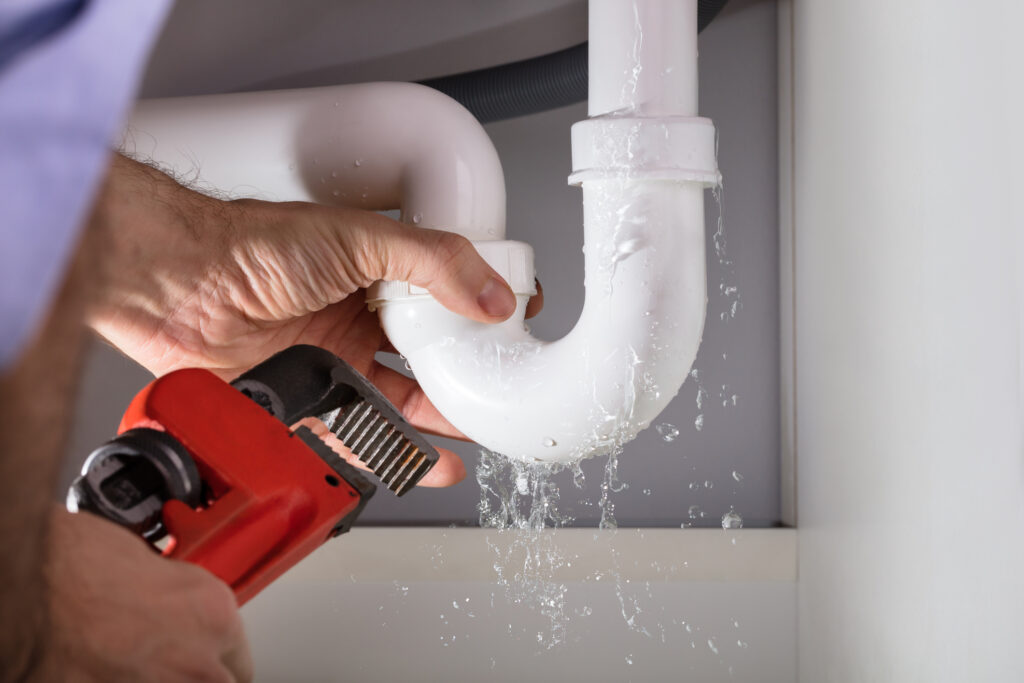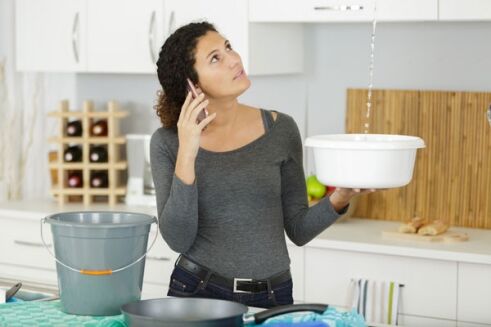Emergency Plumbing Fixes to Use Until Expert Help Arrives
Emergency Plumbing Fixes to Use Until Expert Help Arrives
Blog Article
The author is making several good pointers related to What to Do While Waiting for an Emergency Plumber in general in the content down below.

Plumbing emergencies can strike at any moment, creating stress and potential damage to your home. Whether it's a ruptured pipeline, a clogged drain, or a leaking tap, understanding exactly how to take care of the scenario until an expert plumbing technician gets here can conserve you from further complications. This short article supplies crucial emergency situation plumbing tips to help you reduce damage and gain back control throughout a pipes situation.
Switch off the Water
The first step in any plumbing emergency is to shut off the water supply. For localized issues, such as a leaking faucet or toilet, turn off the valve near the fixture. In the case of a significant leakage or ruptured pipeline, situate your home's major water shut-off valve and transform it off quickly. Understanding the place of these valves beforehand can save valuable time throughout an emergency situation.
Turn off Your Water Heater
In particular emergency situations, such as a ruptured pipeline, it's a good idea to shut off your hot water heater. This protects against getting too hot or damage to the system when water stops moving. Turn off the power supply to the water heater (electric or gas) and let it cool down to avoid prospective risks.
Briefly Stop a Burst Pipe
A ruptured pipe can lead to considerable water damage in mins. To minimize the concern:
Call a professional plumber instantly to deal with the issue permanently.
Have an Emergency Plumbing Set
Prepare a basic plumbing emergency kit to handle minor issues effectively. Your package should consist of:
Having these tools accessible can make a substantial distinction in your capability to handle emergencies.
Unclog Drains Securely.
A clogged up drainpipe can be a discouraging and untidy problem. Here's just how to tackle it:.
If these methods don't function, stay clear of using extreme pressure, as it might worsen the blockage.
Handle Overflowing Toilets.
An overruning toilet can cause immediate mayhem. Right here's what you must do:.
Address Small Leaks with Temporary Fixes.
Small leaks can quickly become significant issues if left uncontrolled. Use these short-term repairs up until specialist aid arrives:.
While these repairs aren't long-term, they can assist minimize water loss and damages.
Take Care Of Frozen Water Lines Very Carefully.
In chillier climates, icy pipelines are a typical emergency. If you believe an icy pipe:.
Know When to Call a Specialist.
While quick fixes can assist temporarily, particular plumbing issues need immediate specialist interest. Call a plumber if:.
Promptly speaking to an expert ensures the concern is fixed correctly and protects against additional complications.
Protect against Additional Damages.
Taking quick action to lessen damage can conserve you time and money in the future. Right here's how:.
Final thought.
Pipes emergency situations can be overwhelming, however with the best understanding and devices, you can take care of the situation efficiently up until aid gets here. By turning off the supply of water, attending to tiny leakages, and making use of temporary fixes, you can lessen damages and maintain your home safe. Bear in mind, these tips are short-term services; always seek advice from an accredited plumbing professional to take care of the root cause of the problem. Preparation and quick thinking are your ideal allies in any kind of pipes emergency situation.
8 Helpful Tips for Managing Plumbing Emergencies at Home
If your plumbing system hasn’t failed once, wait for it because almost everyone has a story to tell. Sometimes, it could be simple emergencies such as a leaking pipe, a blocked cistern, or even a big burst pipe. In situations like this, you need to have some handy tips to save you some money and from possible damages.
Take care of minor issues early.
Sometimes, you could have avoided an emergency by taking proactive measures while it was still early. Some major plumbing emergencies can be a result of an ignored minor issue. We recommend that you have items like plumbing tapes and other related items. A plumbing tape can allow you to manage minor leaks before the plumber arrives.
Cut off the water supply.
This tip is essential in almost any type of leakage problem. For problems like minor leakages in the toilet or kitchen, turn off the supply that takes water to the affected pipes. If the leakage is a major pipe, you must shut off the supply valve to the entire building. This will help you avoid flooding your home and neighbors if you share a flat.
Know your plumbing system
Folks typically move into a new apartment without understanding the water supply around the building. This can prove disastrous if a water emergency arises and the plumber is far away. The previous tip will prove useless if you don’t practice this one. More importantly, know where your water shut-off valve is located – you’ll need that knowledge to prevent potential home floods.
Have some common handy tools
There are lots of plumbing emergencies that you can handle without hiring a plumber. That’s why you must keep some tools available always. Some tools that you can use to fix simple plumbing emergencies easily include plumbing tapes, screwdrivers, thread seal tapes, plungers, pliers, tape measures, and rubber gloves.
Insulate your pipes from cold
You’ll save yourself from many plumbing expenses if you protect your water pipes from the cold. This is because of the harmful effects that cold weather can have on your pipes. During winter, your pipes can burst from being overly expected to freezing temperatures. So, make sure insulators are there to keep the pipes working correctly.
Avoid practices that will clog your toilet.
Many people indulge in practices that can damage the plumbing system of the entire building. One of these is when they use their toilet to dispose-off garbage. They flush all kinds of things, such as paper towels, bandages, hairs, female sanitary products, etc., down the toilet. This will block your toilet in the long run, incurring unnecessary expenditures. Dump such waste in the trash instead.
Check your dials regularly.
Sometimes, there could be leakages in your home without noticing them in time. So, constantly monitor your water meter dial. If the dial is reading when there is nobody using water, this is an indicator that there is leaking. Check for leaks immediately. Call a plumber as soon as possible if you can’t find any.
https://www.constructionplacements.com/8-helpful-tips-for-managing-plumbing-emergencies-at-home/

Hopefully you liked our article on Plumbing Emergencies: Tips on What To Do Before. Thank you for taking a few minutes to read our posting. Liked our post? Please share it. Let somebody else locate it. We recognize the value of your readership.
Hire A Pro Report this page